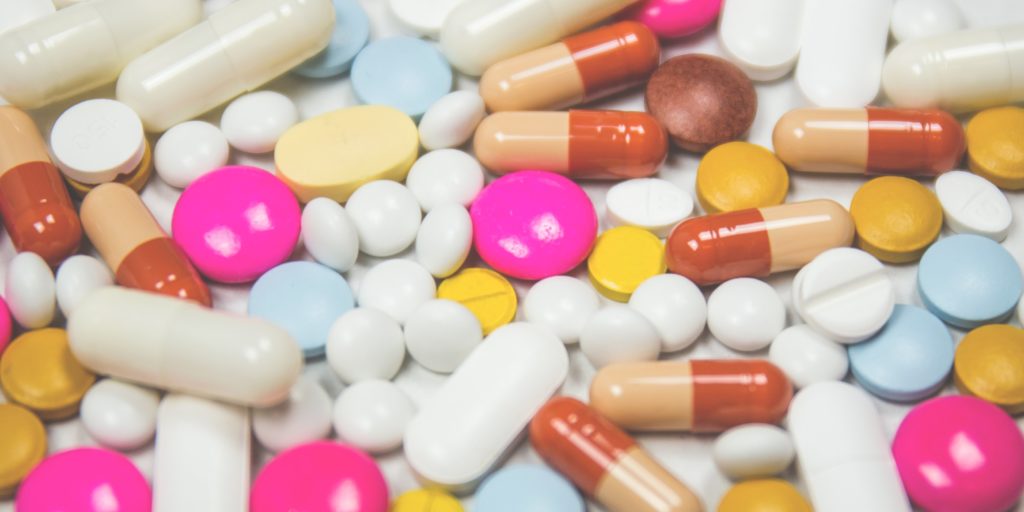What actually is AD(H)S?
What does ADHD stand for?
ADHD stands for attention deficithyperactivity disorder. A syndrome is a collection of different symptoms or findings. The terms hyperkinetic syndrome (HKS), psychoorganic syndrome (POS) or “fidget spinner syndrome” are sometimes used as synonyms. The main symptoms in affected people are impaired attention, a high level of motor activity and reduced impulse control.

Is ADHD a disorder?
Opinions differ widely as to whether ADHD is a non-pathological, individual characteristic or a disease. There is no clear dividing line between so-called “normal” behaviour and behaviour that is classified as abnormal. In addition, we humans are all unique creatures who behave differently. It is also interesting to know that our behaviour was judged very differently in different eras. Even today, the same behaviour – depending on the culture – is judged very differently (from completely normal to pathologically disturbing). (Pronounced) AD(H)S often becomes an issue for those affected and their families at the latest when the child is due to start school. In terms of inattention (attention deficit disorder), intense physical restlessness (high level of motor activity) and erratic behaviour (reduced impulse control), affected children often behave strikingly differently to the majority of their classmates.

Frequency of AD(H)S
The figures regarding frequency vary greatly – depending on the type of diagnosis (which criteria, how weighted). A figure of 3-5% is usually given. Boys are significantly more frequently affected. Whereas not so long ago it was assumed that ADHD “grows out” in adolescence and early adulthood, this has now been refuted. Adults are also affected by ADHD. Sometimes a diagnosis is even made late in life. Those affected then say – often coupled with a certain sense of relief: “Now I finally understand why I have had to overcome so many challenges in my life – for as long as I can remember!”
Development of ADHD
There are various factors that can lead to a person being affected by ADHD. Whether and to what extent these individual influencing factors ultimately “come into play” and become visible depends on many facts and varies from person to person. In addition, the severity of the symptoms can also vary greatly at different stages of a person’s life! There are always complex interactions between biological, psychological and social factors. It is therefore never just the genes and never just the environment, upbringing or diet that cause ADHD and determine its severity.
Causes of AD(H)S
As important components with regard to possible causes and also the severity of of AD(H)S are currently
- hereditary influence (= genetic predisposition)
- Environment/environment: e.g. course of pregnancy & birth; state of health of the expectant mother of the expectant mother; parenting style; diet; exercise; social environment; Influences such as high screen consumption etc.
- Structural and functional variants of certain brain regions (e.g. regions responsible for attention & behaviour control) Behaviour control)
Variantsin theneurotransmitterarea: It is assumed that the transmission of information between certain nerve cells is partially altered. The fact that AD(H)S can be influenced by certain drugs (stimulants) is seen as evidence of a variant in brain metabolism.

Symptoms, challenges, problems
Main symptoms of AD(H)S
The following main symptoms apply to most of those affected:
Disturbance of attention performance
- External and internal stimuli are perceived very intensively via the sensory organs. It is also difficult to filter all these stimuli (important or unimportant? Pay attention or not?). This fact often leads to increased distraction and therefore reduced attention.
- The unfiltered absorption of many external stimuli as well as internal impulses often leads to stimulus overload in those affected and thus often to significantly faster fatigue/exhaustion.
- Concentrating and staying focussed for long periods of time is therefore often a challenge for many of those affected.
Reduced impulse control
- Very spontaneous behaviour is common – often without being able to weigh up the possible consequences beforehand; increased willingness to take risks
- Difficulty waiting for one’s turn
- Outbursts of anger / aggressive behaviour (usually short-lived – nevertheless very stressful / hurtful for those around them).
High level of motor activity
- not for everyone! (see below)
- a lot of physical activity
- physical stillness (sitting still) is difficult
- Difficulty calming down, winding down, relaxing, falling asleep
- Challenge of finding the right balance
Important to know: This high level of motor activity often shifts from the outside (visible movement) to the inside (nervousness and inner restlessness; “being driven”) with advancing age.
Special form: ADD
However, there are also sufferers for whom hyperactivity is not an issue at all. This is known as ADD. ADD sufferers are often perceived as slow and dreamy. More often than ADHD sufferers, they remain inconspicuous and are therefore not diagnosed or only diagnosed late.
Other symptoms
Often go hand in hand the two or three main symptoms mentioned above are often accompanied by other symptoms:
- talking a lot and quickly – often interrupting the other person or finishing their sentences
- Mood instability – rapid changes in mood (rapid “seeing red”); sometimes a tendency towards negative moods
- increased risk of reacting irritably / aggressively more quickly –> interpersonal relationships can suffer and it can be dangerous in road traffic
- Problems with self-organisation (setting priorities; planning and completing work; time management; meeting deadlines; managing materials and documents …)
- Dealing with stress is more challenging for those affected – fewer coping strategies available / practised
- Dealing with money as a challenge; spontaneous purchases with (too) high expenses – often also to give someone a present…

AD(H)S and school
Unfortunately – so much feedback from those affected and their parents – some facts about today’s school system Facts about today’s school system often prove to be major hurdles for people with AD(H)S Hurdles:
- larger classes Classes (cost-cutting measures!)
- fewer Half-class lessons (cost-cutting measures!)
- impressive Heterogeneity in the classes (various special needs of numerous children and Children and young people in the class)
- more and more more and more deliberately multi-class groups (AdL = mixed-age learning) Learning)
- more and more more teachers are teaching one class – even at lower school level (many part-time Part-time positions)
- a great a lot of independence and self-organisation is required of the children
- partly lack of structures and rituals
- greater Greater abundance of subject matter and topics – therefore more time pressure
- less Time for sustained practice and familiarisation
- due to high workload for teachers challenged to / beyond the limit
- increased Change of teachers (illnesses, etc.) – even during the school year
- Teachers, who are only very poorly informed about AD(H)S or even reject it as a “fashionable diagnosis” even reject it
For AD(H)S sufferers often all challenging facts…

Strengths of AD(H)S sufferers
It is crucial that those affected and those around them apply the positive focus, because: People affected by AD(H)S also have numerous strengths! It is important to recognise and value these (i.e. to express them!) and thus support those affected in building a healthy self-image and self-esteem.
Thus for example, the high level of motor Activity level also has positive effects. Here are some Examples:
- Affected people often show an infectious enthusiasm for a particular cause / topic and are extremely committed to it…
- Thanks to their high energy levels, those affected can often cope with enormous amounts of work.
- Those affected often have a wealth of ideas and frequently inspire entire teams to come up with innovative new ideas and solutions – in the sense of “thinking out of the box” or “a breath of fresh air in everyday life”…
- Many are very open to their fellow human beings (large circle of friends) and also to topics unknown to them. They also show great creativity.

Diagnosis/treatment options
Diagnosis: Who makes the diagnosis?
It is essential that this is done by a specialist who has undergone specific training and further training and is also experienced in AD(H)S diagnoses. It is important to ask around carefully in this regard. Good specialists use structured diagnostic modules and always include the environment (family/friends; school/workplace) (question and observation sheet).
ADHD: What can help?
The decisive factor is the level of suffering primarily of those affected and also of their environment. If change is desired (suffering is too great), then action / treatment is called for. It usually pays not to “endure” for too long.
There are various helpful approaches that support, strengthen and encourage AD(H)S sufferers. This is known as the “multimodal approach”.
As the manifestation of AD(H)S is very individual, the approaches should be adapted accordingly.

Parenting style
A parenting style characterised by trust and appreciation and respect is key for affected children. At the same time, however, it should also be clear and consistent. It is important to set appropriate tasks (sub-goals!) and provide quick, positive feedback on successes. However, support in dealing with setbacks and fixed structures, e.g. for homework, work to be done, etc., also help. Specific parent training programmes can be very valuable in this respect. Some parents also appreciate an exchange with other affected people (self-help groups).
Training teachers on AD(H)S is also part of this; still too few are well informed and trained.
The following Points are of great importance for most of those affected:
- conscious, active promotion and strengthening of a healthy self-image/self-esteem
- Practising body awareness and relaxation
- promoting emotional competence (dealing with feelings/emotions)
- expanding social skills (fellow human beings in the family/class/workplace)
Possible supportive measures/treatments/therapies
- Support and encouragement at school (curative education)
- Change of diet
- Micronutrient therapy (vital substance therapy)
- Sport / exercise
- Ergo-, body-, music-, dance- or art therapy
- Neurofeedback
- etc.
Important it is always important to know the desired goal in advance and to include the preferences preferences (“get a yes mandate”!) and to act accordingly to act accordingly.

Exercise
We all know that exercise is important – yet we often neglect it. For people with AD(H)S it is a must. The high level of motor activity can also be described as “self-therapy”. It is not uncommon for top athletes to be AD(H)S sufferers!
Exercise promotes the entire metabolism (including the production of brain messengers such as dopamine, but also hormone production, etc.). Physical and mental well-being is massively increased through exercise. Most people get the exercise they need easily and regularly if they can incorporate it into their journey to work or school.
Medication
For some sufferers, the level of suffering is so high or everyday (family) life is so challenging that stimulants are administered. Unfortunately, it is also a reality that AD(H)S medication is increasingly being prescribed for younger and younger children.
Unfortunately, medication is often administered before a longer phase with the application of various measures in the different areas of life of those affected and their environment.
It is also not uncommon for parents to be put under a lot of pressure in the sense of “If you don’t agree to your child taking medication, you will ruin your child’s (school) career!”. A very difficult situation for parents and an unfavourable development.
Various active ingredients
The amphetamine derivative methylphenidate (under various brand names) or the noradrenaline reuptake inhibitor atomoxetine is often prescribed. Lisdexamphetamine can also be used as a variant. All three active substances require a prescription – methylphenidate and lisdexamphetamine are even classed as narcotics.
These substances should only be prescribed with great care and caution – after a prior serious AD(H)S assessment and diagnosis by a recognised and experienced specialist. The prescription should also be preceded by a thorough medical examination – including the exclusion of vital substance deficiencies.

Good information and close medical checks
Those affected and, in the case of minors, their carers, must also be given the necessary information on the expected effect (e.g. rebound) and, above all, on side effects and (long-term) risks.
In addition, from the start of use, long-term and close monitoring and control is of great importance (regular appointments with a healthcare professional!).
Unfortunately, the reality is sometimes different. There are doctors who have the prescriptions for continued use of the medication sent to patients by post. And the active ingredient methylphenidate in particular is traded in some break centres as a “performance enhancer” for those not affected…
Medication: yes or no?
The subject of “medication (stimulants) – yes or no” is a very controversial topic among those affected and their families as well as in the media. The spectrum is broad and ranges from: “Why not give a child such a valuable aid? Without medication as early as possible, everything gets worse!” to “The administration of stimulants is a massive intervention in the (brain) metabolism with sometimes massive side effects.” And – even the manufacturers admit it: Nobody knows exactly what is actually influenced and changed in the body. What’s more, virtually no studies have yet been carried out into any long-term effects!
Decision after careful consideration
Many sufferers and their families only make their decision regarding the use of medication after careful consideration. It is important that they have access to objective and comprehensive information (pros and cons) – also from specialists. Not all parents/affected persons have the time, energy and ability to do their own research. It is also important that those affected/their parents receive respectful and professional support from the specialists at all times once they have made their decision, regardless of whether they are “in favour or against”. If this is not the case, they should switch to another specialist.
AD(H)S and nutrition
Nutrition plays an important role
What you eat is important. But the atmosphere in which you eat a meal also influences your body and soul. Intestinal health should also not be forgotten. If food cannot be absorbed in the intestine, or only poorly, sooner or later this will have a massive impact on the whole person.

Almost almost all AD(H)S sufferers benefit enormously from structures in everyday life. Regular Regular mealtimes with a ritual at the beginning (song, saying, prayer) in a familiar Environment without time pressure have a positive effect. Especially important for children is the positive example of their carers. Uncontrolled eating of salty snacks or Snacks or sweets at the same time as other activities (smartphone etc.), and poor quality meals (convenience food) are hardly conducive in this respect beneficial in this respect.
Certainly it is much easier to maintain healthy eating behaviour in the family when the children are still small. Controlling the eating behaviour of young people outside the Behaviour outside the parental home is impossible, and it doesn’t help if caregivers and there is no point in carers worrying or reproaching them about it. That’s why it’s all the better if positive eating behaviour is modelled by adults at an early age and practised together.

AD(H)S and sugar consumption
Sugar consumption in Switzerland is still very high, too high for many people, not just those with AD(H)S!
Parents of children with AD(H)S report time and again that sugar increases high levels of motor activity (hyperactivity) and reduces impulse control (impulsivity).
So here, too, it is important to take a conscious look and not forget the hidden sugars (sweet drinks; fruit juices; yoghurts; breakfast cereals; baked goods; …). It is important to offer alternatives and develop good habits.
Gluten sensitivity in AD(H)S sufferers
The wheat used today wheat used in the food industry today is the result of many years of Years of breeding. It contains significantly more gluten. Gluten, also known as gluten or binding protein, glues the starch grains together in dough and thus enables this gives the baked goods an elastic consistency and also contributes to the longer shelf life of the products.
It is becoming increasingly it is now becoming increasingly clear that people with this disposition (and this includes AD(H)S sufferers) react very sensitively to too much gluten. A consumption can damage the intestinal mucosa in these people, even if they do not have no coeliac disease or wheat allergy can be detected.
It is therefore worth taking a critical look at wheat consumption and, if necessary, replacing wheat with gluten-free products such as potatoes, rice, millet, maize, buckwheat, amaranth or quinoa.
Exposure to milk proteins
Experience Experience shows: AD(H)S sufferers often struggle with skin and digestive problems (eczema) Digestive problems (eczema, neurodermatitis; flatulence, diarrhoea). In this Context, it may be worth taking a closer look at the consumption of milk and dairy products under the microscope.
Vital substances/micronutrients for AD(H)S
It is becoming increasingly known that the lack of intake (unhealthy diet/poor intestinal health) and consequently Intestinal health) and consequently a lack of vital substances/micronutrients can have a negative Influence on the symptoms of AD(H)S. There are connections between Micronutrient deficiencies and AD(H)S – e.g. iron, zinc, vitamin D etc.
If such deficiencies are diagnosed and corrected, a clear improvement in AD(H)S symptoms can often be achieved causally and without the administration of medication. This approach also enables a reduction in the dose of medication administered. Unfortunately, however, such measurements and corresponding therapy are still rarely carried out.

Omega-3 fatty acids
The so-called omega-3 index (= ratio of omega-3 fatty acids to all other fatty acids) can be measured in the blood. Many people in our latitudes have a poor index – AD(H)S sufferers often have an even poorer ratio. Long-chain omega-3 fatty acids are also of enormous importance for brain function. Many studies show a clearly positive influence regarding the effectiveness of omega-3 fatty acids (especially DHA & EPA) in AD(H)S sufferers. The omega fatty acids DHA (docosahexaenoic acid) and EPA (eicosapentaenoic acid) in particular can help to reduce the negative symptoms of concentration, high levels of motor activity and reduced impulse control.

Vitamin D3 (sun vitamin)
Many people in Switzerland have vitamin D levels that are too low! This is due to the fact that sunlight in our latitudes is not sufficient to produce enough of it in the skin. Vitamin D is involved in over 200 functions in the body.
A good vitamin D3 level is important for, among other things
- a well-functioning immune system
- improving brain performance
- strengthening the muscles
- the incorporation of calcium into the Bones.
Magnesium deficiency in ADHD
Researchers from Taiwan published a meta-analysis on the connection between magnesium status and ADHD. It was found that children diagnosed with ADHD had lower serum and hair magnesium levels than children without ADHD.
Zinc
Zinc helps to increase dopamine levels. Interesting here too: If you measure the zinc level in the blood of children with ADHD, it is significantly lower than in those without the disorder. In a study by Bilici et al in 2003, 400 children were given 150 mg of zinc per day. The result: a significant reduction in motor activity levels and an improvement in impulse control – but no effect on attention performance.
Iron(ferritin)
It is known is known to be needed for dopamine synthesis. 84% of all AD(H)S children have a significant ferritin deficiency! And: the more severe the deficiency, the symptoms of AD(H)S become more pronounced. Unfortunately, there are still no relevant studies on the effectiveness of iron supplementation. However, it is certainly worth having this value measured in the blood and acting accordingly.
Other vital substances
Other vital substances can contribute to improving the well-being of AD(H)S sufferers. There are also highly effective, proven products in the field of vital substances to strengthen the immune system and improve intestinal health. Good counselling with individual dosage is always important.